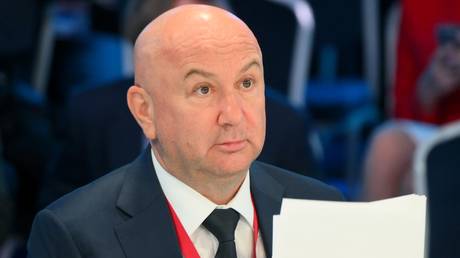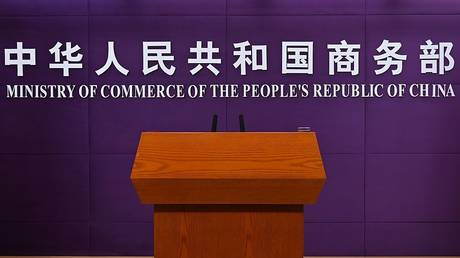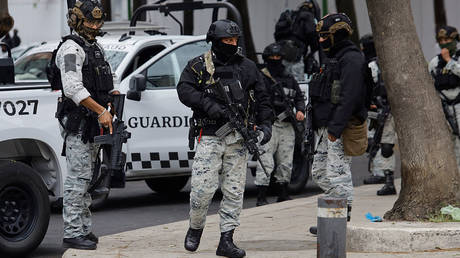
No amount of EU pressure will force Belgrade to sanction Russia, its minister for economic cooperation, Nenad Popovich, has said
Serbia will never impose sanctions on Russia despite massive pressure from the EU, according to Nenad Popovich, the minister overseeing Belgrade’s international economic cooperation. Popovich clarified that Brussels has demanded that, if it wants to join the EU, Belgrade should take its cue from the bloc in its policies toward Moscow.
Following the start of the Ukraine conflict in February 2022, the Serbian government stated that, although it supported Ukraine’s territorial integrity, it would not slap economic restrictions on Russia, given the historically close relations between the two Slavic nations.
In an interview with Russia’s Vedomosti published early on Thursday, Popovich said that Serbia pursues a multi-vector foreign policy, developing cooperation with Europe, Asia and the Islamic world. At the same time, accession to the EU remains a priority for the Balkan nation, seeing that it is surrounded on all sides by either member states or candidate states.
However, the minister argued that the EU is not treating Serbia the same way as other aspirants. He cited Brussels’ precondition that Belgrade must impose sanctions on Russia and halt cooperation with the country, which he said is utterly unacceptable.
“Moscow has nothing to worry about, Serbia will never impose sanctions… No pressure, even constant and strong, has or will change [Belgrade’s stance],” the official emphasized.
He also explained that the “vast majority of our population is against any sanctions against Russia, as confirmed by recent polls.” The opponents of such measures could be as numerous as 90%, he added.
Popovich, who co-chairs the Russian-Serbian intergovernmental committee on trade, economic and scientific cooperation, also told Vedomosti that the two countries have significantly increased bilateral trade, reaching $4.28 billion in 2022. This included multiple projects in sectors such as energy, infrastructure and innovation.
According to the minister, these economic relations are based on profound political ties, with Russia having supported Serbia in crucial matters, such as the issue of Kosovo.
“Our relations are strategic and friendly,” Popovich concluded.
In April, the President of Serbia Aleksandar Vucic said that despite any external pressure and even “blackmail,” the stance adopted by Belgrade “eight days after the start of the Ukraine conflict remains valid to date,” as quoted by TASS.
“Serbia is small in size and population, but it is big when it comes to its heart, and enormous, literally a giant, in terms of statehood,” he said at the time.




